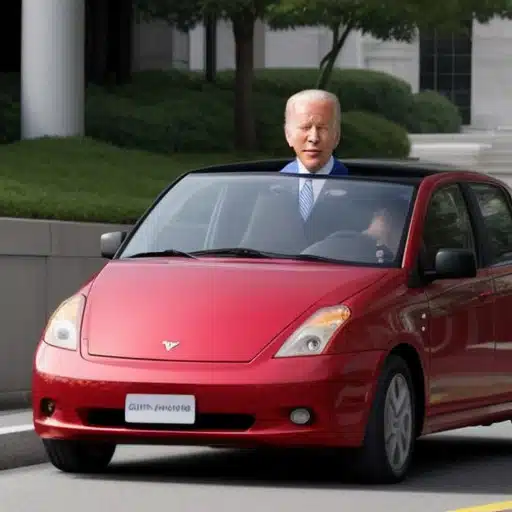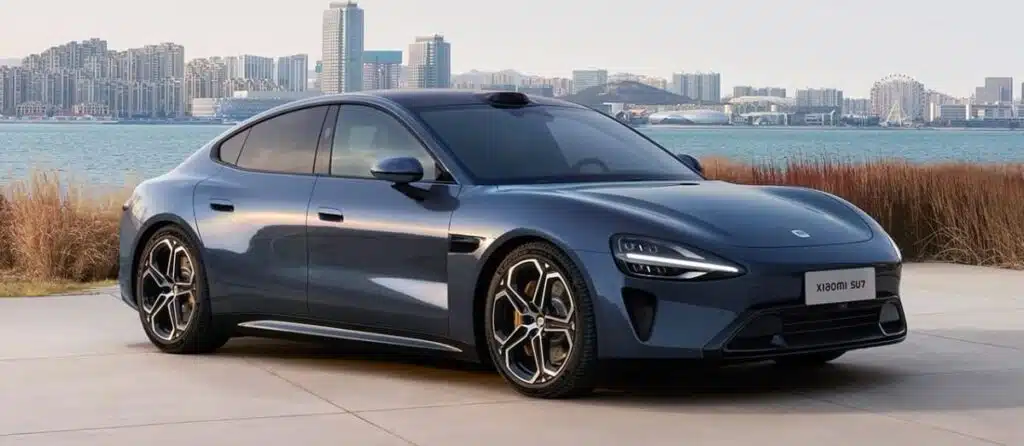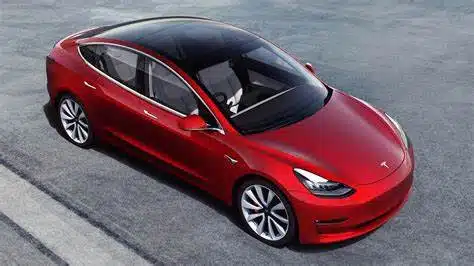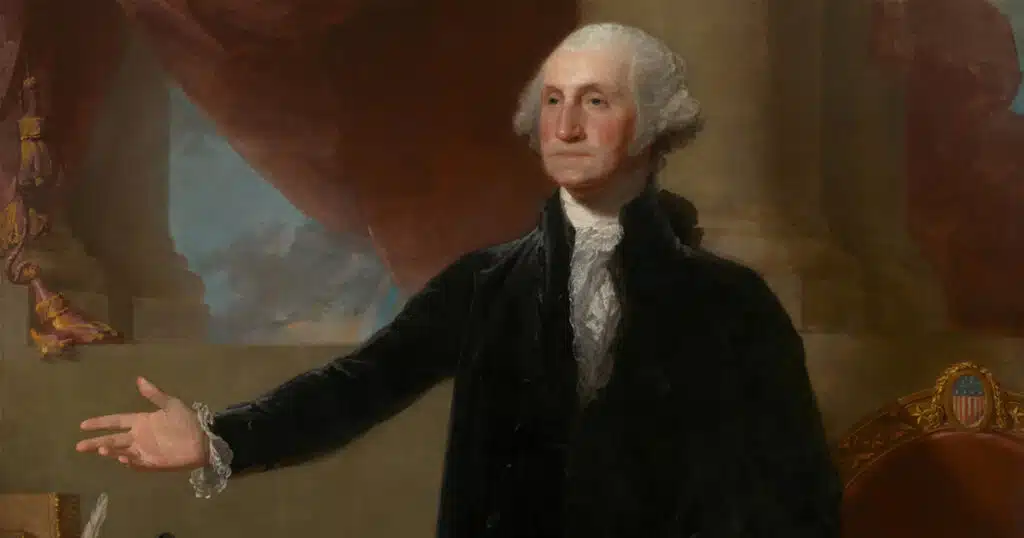
China’s EVs Threaten to Destroy the U.S. Auto Industry
I vividly remember my first new car purchase in the mid-1980s. Although gas prices had moderated from the Arab oil embargo days of the 70s, a gallon of regular was still about a buck twenty. In every middle-class household, the monthly gas budget was a very big deal.
My dad was always a Chevy man, so I went first to the local Chevy dealer and settled in on a Citation. It was reasonably priced, and for that time, had good gas mileage. Just for comparison, I decided to visit a Toyota dealer and looked at their new model called “the Camry.” The salesman wasn’t into his presentation five minutes before my mind was made up. There was simply no comparison. The Camry was light years ahead of the Citation in terms of features, price, performance and build quality. If you didn’t know better, you would have thought the Chevy was produced by some third-world Soviet block country.
I remember wondering, how could this have happened? How could the U.S. automobile industry get lapped by Japan so quickly? Why weren’t they aware of the advancements coming out of Tokyo? Why hadn’t the Americans adapted and competed?
While GM, Ford and Chrysler sat idly by, Japan gained a 25% share of the U.S. auto market by 1985, and it has steadily grown to almost 40% today.
It took the US automobile industry decades to recover, and in some ways, it never really has. Now, we’re about to see history repeating itself, only it’s worse.
Woke Leftists go all in on EVs
In its misguided attempt to pander to the environmental extremists, the Biden administration took electric vehicles, which were perfectly positioned in a market niche for wealthy early adopters, and turned them into a mass-produced nightmare. With a stroke of a pen by the EPA, a non-elected bureaucracy, Biden implemented draconian tail pipe emission rules that effectively banned internal combustion engines (ICE) by 2027.
Naturally, woke environmentalists swooned because they hate fossil fuel and anything related to its use. In typical fashion, they conveniently ignore the environmental disaster EVs represent, the safety issues related to battery reliability in extreme temperatures, charging times, range anxiety, and the reality that most Americans just don’t want one.
But that didn’t matter to Slow Joe and his leftist cronies, who enjoy making your life as miserable as their own. For these sociopaths, EVs are just a bridge to forced public transportation. Ultimately, the left wants to see you riding the subway, wedged between a smelly bum and a drug addict. So, Biden went full speed ahead, investing $30.5 billion in EV charging stations, battery production, rebates and component manufacturing.
The China Kill Shot to the U.S. Auto Industry
While all this was happening, Xi Jinping had to be laughing at Biden’s buffoonery. In another instance that demonstrates his inability to engage in second level thought, it must not have occurred to Sleepy Joe that China held all the cards when it came to EVs.
In a shocking display of manufacturing superiority, China surpassed the US as the world’s largest automotive industry in less than a decade. For example, a similar style and appointed EV available in Europe for $50k is currently selling in China for 16k.
This shocking difference in cost is based on China’s ability to manufacture the world’s most advanced battery packs. Understanding U.S. vulnerability as it bumbled forward, Xi made it mandatory for every company wanting to sell EVs in China to purchase batteries manufactured in the homeland. As a result, battery production scaled up quickly, and because Chinese companies own every aspect of the process from mining essential elements, through the finished product, they quickly achieved economies of scale.
Recently, when asked whether there is an alternative to partnering with Chinese battery companies, CEO Jim Farley said, “No, there isn’t. LFP technology is very well developed. The battery business is a global business. And there were no alternatives.”
Slow Joe Slow to Respond
Once he, or his handlers, began to understand the tsunami that was coming to destroy the U.S. auto industry, Biden played the tariff card, placing a 100% border tax on electric cars from China. While this may buy some time in the short term, over the long term, it’s an untenable position.
Naturally, there will be a response from China, who has the ability to punish a number of U.S. industries, including agriculture, semiconductors and fossil fuels. Worse, the tariffs may prove wholly ineffective because the price differential is not based on lower labor costs. Instead, China’s superior technology and processes can be duplicated anywhere. Analysts believe Chinese automakers will simply ramp up production in Mexico, which will circumvent tariffs under the USMCA trade agreement negotiated by President Trump.
As if all this wasn’t bad enough, China isn’t just building compact, boxy, and unappealing vehicles. Chinese manufacturer Xiaomi, just released the SU7, which looks like a Porsche but costs less than a Tesla. While the Porche Taycan Turbo GT goes for around $250,000, the SU7 costs about $41,000.
Take a look at the picture below and then compare it to the Tesla Model 3 for about the same price. Which would you want to own?


It Didn’t Have to be This Way
When experts talk about the damaging effects of cognitive decline, this is an example of exactly what they mean. It’s fine for rabid, myopic environmentalists to demand EVs as a replacement for ICE vehicles, but the president is expected to consider all the ramifications of any proposed action before supporting it.
In this case, a ban on ICE vehicles sent the American auto industry into a frenzy as they desperately tried to retool on the fly in preparation for 2027. The results have been mostly disastrous. No one wants their electric models, and Ford has admitted it is losing $130,000 on every EV it sells. A boatload of money that could have been used to improve existing ICE vehicles has been squandered.
Instead, if Biden had pursued the development and mass production potential of synthetic fuel with the same vigor and resources committed to EVs, we might have been able to reduce the tailpipe emissions of the existing U.S. fleet by up to 70% and allowed American manufacturers to continue producing clean, efficient ICE vehicles, which the American consumer prefers. There are several companies already producing synthetic fuel commercially. The industry needs the kind of investment the U.S. has made in EVs to bring production to scale. Currently, the federal government has financed a paltry $121 million in synth fuel production.
It’s another damning indictment of the Biden presidency, and we’re all going to pay a substantial price as China continues its relentless ascendency to its position as the world’s most powerful nation.



